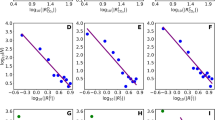Abstract
At its best, the quest for sustainable use of the planet aspires to a harmonious relationship between human society and natural systems. At its worst, sustainable use is an assertion that human ingenuity and technology can free humankind from biophysical constraints and its dependence upon ecological life support systems. Although science guided by reason is essential to reaching informed decisions on sustainability, it must be accompanied by a new ethos, or set of guiding beliefs. Science can never reduce uncertainty on the complex multivariate systems called ecosystems to the degree that explicit legislation would be possible to protect the components on a species by species, habitat by habitat, ecosystem by ecosystem, and landscape by landscape basis without going to ridiculous extremes. This circumstance does not, however, invalidate attempting to define conditions appropriate to achieving sustainability. Some consensus must be reached on the broad, general conditions governing human society's relationship to the environment. A shared ethos would promote sustainable use and reduce the possibility of harsh penalties exacted upon species that do not respond adequately to alteration in their environment.
Similar content being viewed by others
REFERENCES
Abernethy, Virginia Deane (1993). Population politics. New York: Plenum Press.
Abernethy, Virginia Deane (1996). Ethics, migration, and global stewardship. International Migration Review 30(1), 132–150.
Avise, J. C. (1994). The real message from Biosphere 2. Conservation Biology 8, 327–329.
Barzun, J. (1986). A word or two before you go. Middleton, CT: Wesleyan University Press.
Boulding, K. (1966). The economics of the coming spaceship Earth. Environmental quality in a growing economy. New York: Harper and Row, pp. 3–15.
Cairns, J., Jr. (1993). The intellectual electric fence. Annals of Earth 11(3), 17–18.
Cairns, J., Jr. (1994). Ecological restoration: Re-examining human society's relationship with natural systems. The Abel Wolman Distinguished Lecture. Water Science and Technology Board, National Research Council, Washington, D.C.
Cairns, J., Jr. (1995). Eco-social restoration: Re-examining human society's relationship with natural systems. Annals of Earth 13(1), 18–21.
Cairns, J., Jr. (1996). Determining the balance between technological and ecosystem services. In P. C. Schulz (Ed.). Engineering within ecological constraints, pp. 13–30. Washington, D.C: National Academy Press.
Cairns, J., Jr. (1997). Sustainability, ecosystem services, and health. International Journal of Sustainable Development and World Ecology 4, 1–13.
Charles, D. (1997). Recycling industry waste. Morning Edition, Washington, DC: National Public Radio, July 31, 1997.
Costanza, R., d'Arge, R., de Groot, R., Farber, S., Grasso, M., Hannon, B., Limburg, K., Naeem, S., O'Neill, R. V. & Paruelo, J. (1997). The value of the world's ecosystem services and natural capital. Nature 387, 253–260.
Crawley, R. (translator) (1951). The complete writings of Thucydides. New York: Random House.
Daily, G. (Ed.) (1997). Nature's services: Societal dependence on natural ecosystems. Washington, D.C: Island Press.
Diamond, J. (1997). Kinship with the stars. Discover 18(5), 44–45.
Ehrlich, P. R. & Ehrlich, A. H. (1996). Betrayal of science and reason: How anti-environmental rhetoric threatens our future. Washington, D.C: Island Press/Shearwater Books.
Feynman, R. (1988). What do you care what other people think? New York: W. W. Norton Publishers.
Finley, J. H., Jr. (1951a). Introduction. In R. Crawley (translator). The complete writings of Thucydides. New York: Random House.
Finley, J. H., Jr. (1951b). Thucydides, The Peloponnesian War. New York: Random House.
Gordon, L. (1997). Race, gender, and painful transformations in the field of American history. The Chronicle of Higher Education 43(44), B4–B5.
Hardin, G. (1968). The tragedy of the commons. Science 162, 1243–1248.
Hardin, G. (1995). The immigration dilemma: Avoiding the tragedy of the commons. Washington, D.C: Federation for American Immigration Reform.
Hawken, P. (1993). The ecology of commerce. New York: Harper Collins Publishers.
Holmberg, J. & Robèrt, K.-H. Submitted. The rationale behind the system conditions and their applications.
Holmberg, J., Robèrt, K.-H., & Eriksson, K.-E. (1996). Socioecological principles for sustainability. In R. Costanza, S. Olman, & J. Martinez-Alier (Ed.), Getting down to Earth—Practical applications of ecological economics. Washington, D.C: Island Press.
Janzen, D. H. (1988). Guanacaste National Park: Tropical, ecological, and biocultural restoration. In J. Cairns, Jr. (Ed.), Rehabilitating damaged ecosystems, second edition, pp. 143–190. Boca Raton, Florida: CRC Press.
Leakey, R. E. & Lewin, R. (1995). The sixth extinction: Patterns of life and the future of human-kind. New York: Bantam Doubleday Publishing Group, Inc.
Leopold, L. B. (1990). Ethos, equity, and the water resource. Environment 32(2), 16–20,37–42.
National Research Council (1992). Restoration of aquatic ecosystems: Science, technology and public policy. Washington, D.C: National Academy Press.
Orr, D. W. & Ehrenfeld, D. (1995). None so blind: The problem of ecological denial. Conservation Biology 9(5), 985–987.
Pooley, E. (1997). Cows or condos? Time 150(1), 78–84.
Robèrt, K.-H., Daly, H., Hawkin, P., & Holmberg, J. (Undated). A compass for sustainable development. Stockholm, Sweden: The Natural Step Environmental Institute Ltd.
Royal Society of London & The U.S. National Academy of Sciences (1992). Population, growth, resource allocation and a sustainable world. Washington, DC: National Academy Press.
Simon, J. L. (1994). Species loss. In N. Meyers & J. L. Simon (Ed.). Scarcity or abundance? p. 65. New York: W. W. Norton.
Tibbs, H. B. C. (1992). Industrial ecology: An environmental agenda for industry. Whole Earth Review 77, 4–19.
Toffler, A. & Toffler, H. (1993). War and anti-war: Survival at the dawn of the 21st century. Canada: Little, Brown, and Company, Ltd.
UNESCO-UNEP (1996). Humanize the urban environment. Environmental Education Newsletter Connect 21(3), 1–3.
Union of Concerned Scientists (1992). World scientists warning to humanity. Cambridge, MA.
Walljasper, J. (1997). Affluenza—warning: Materialism may be hazardous to your health. Utne Reader Sept/Oct, 19.
Wilson, E. O. (1993). Is humanity suicidal? New York Times Magazine May 30, 24–29.
World Commission on Environment and Development (1987). Our common future. England: Oxford University Press.
Author information
Authors and Affiliations
Rights and permissions
About this article
Cite this article
Cairns, J. The Zen of Sustainable Use of the Planet: Steps on the Path to Enlightenment. Population and Environment 20, 109–123 (1998). https://doi.org/10.1023/A:1023315226929
Issue Date:
DOI: https://doi.org/10.1023/A:1023315226929




